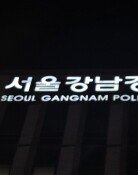[Editorial] Foremost tasks of new Philippine government
[Editorial] Foremost tasks of new Philippine government
Posted January. 22, 2001 15:50,
The `people power¡¯ movement in the Philippines sparked another revolution to oust corrupt and incompetent president Joseph Estrada. Philippine citizens had expelled then president Ferdinand Marcos in 1986. Some 100,000 people, who had gathered at the square in downtown Manila Saturday morning, forced Estrada to surrender to their protests, called the "march for truth and justice.¡¯¡¯
Beleaguered by accusations of corruption and infidelity, the president who was elected just three years ago, could not pull himself out of the `swamp of corruption.¡¯ During the presidential election campaign in 1998, opponents relentless focused on his numerous extramarital affairs and his penchant for heavy drinking and habitual gambling. His election as president by the largest-ever margin was largely the result of overwhelming support from the lower class, who longed for a leader who would help them overcome lives of grinding poverty.
But Estrada embarrassed even his secretaries, many of whom eventually resigned, by making major policy decisions during overnight drinking parties. He was also suspected of having pressured related authorities to go easy on one of his friends who was guilty of stock price manipulation and of having accepted bribes from the operators of illegal gambling businesses. Deep-seated corruption among those in power is blamed for the fact that the Philippines, once a front-runner in Asia in the drive to westernize its institutions, is now suffering from even deeper poverty and growing political unrest.
Partly because she is a woman from a wealthy family and who studied in the United States, Gloria Macapagal Arroyo, who was catapulted to the presidency thanks to the citizens¡¯ revolution, does not have the support of the poor. News reports said that those in the low-income bracket, who had high expectations for Estrada, now accuse President Arroyo of being ignorant about their plight.
The leading forces of the `people power¡¯ movement that brought Estrada to his knees were citizens from the middle or high classes in Manila along with students. Thanks to the fact that she is the daughter of the late president Diosdado Macapagal, Arroyo may manage to attract more backers, but she has a very fragile support base. Some analysts are even cautioning of a possible rift between the poor, who remain supportive of Estrada, and the middle and upper classes who now back Arroyo.
Against this backdrop, it remains to be seen whether the `people power¡¯ movement, having struck a blow against government corruption, can smoothly resolve the class divide under the leadership of the new government.
The democratic countries of the world welcome the victory of citizens who resisted injustice, but we also urge the Arroyo government to resolve the apparent lack of unity among its people. Economic reform and an overhaul of the administration must be the foremost goals of the new Philippine government.







